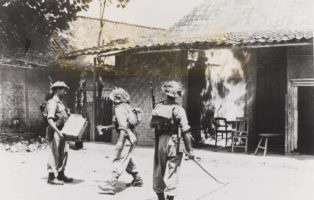Comparing the Wars of Decolonization. Counterinsurgency and Extreme Violence, 1945-1962
The project’s main question will be what structural comparative research teaches us about forms and scale of, the motives for and the conditions conducive to the use of (extreme) violence by Dutch security forces during their attempt to re-establish authority during the Indonesian struggle for Independence (1945-1949).
Project Description
The violent Dutch response to the Indonesian struggle for independence (1945-1949) has been seriously underrepresented in the international historical debate on the wars of decolonization. Compounding this neglect, historians have neglected a systematic comparison of (extreme forms of) colonial violence by the various imperial powers. Triggered by revelations of the structural nature of Dutch atrocities, this project seeks to address this hiatus in order to structurally improve our understanding of the scale and forms of, motives for, and the conditions conducive to the extreme use of violence used during the counter-insurgency campaigns in Indonesia, Algeria, French-Indochina and the various British colonies.
Selected Publications
2018 ‘Looking for “the woman question” in Algeria and Tunisia: ideas, political languages and female actors on the eve and in the aftermath of national independence’ in Max D. Weiss & Jens Hanssen (eds.) Arabic Thought Against the Authoritarian Age: Towards an Intellectual History of the Present (Cambridge University Press)
2017 ‘Performing Algerianness: the national and transnational construction of Algeria’s “culture wars”’, co-authored with Walid Benkhaled, in Patrick Crowley (ed.) Algeria: Nation, Culture and Transnationalism, 1988-2015 (Liverpool University Press)
2015 Our Fighting Sisters: Nation, Memory and Gender in Algeria, 1954-2012 (Manchester University Press). Winner of the 2016 Women’s History Network Book Prize.

